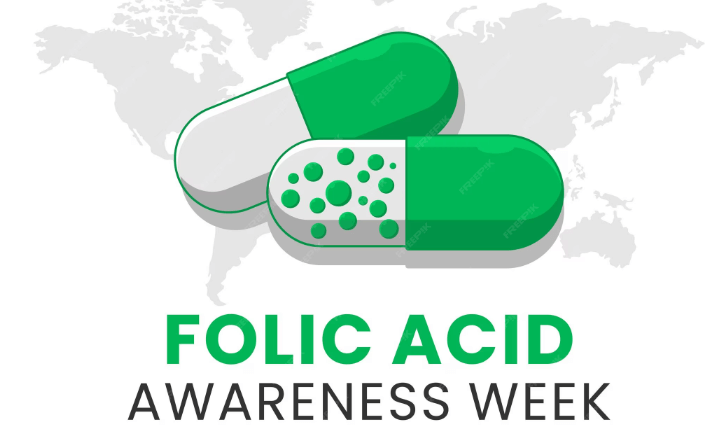Vitamin A in Skincare: Benefits and Side Effects

Table of Contents
- Benefits of Vitamin A in Skincare
- How Vitamin A Improves Skin
- Potential Side Effects of Vitamin A in Skincare
- Choosing the Right Vitamin A Product
- Safe Usage and Application Tips
Benefits of Vitamin A in Skincare
Vitamin A, also known as retinol, is a powerful ingredient that offers numerous benefits for the skin. It is widely used in skincare products due to its ability to improve skin health, appearance, and overall texture. Let’s explore the key benefits of incorporating Vitamin A into your skincare routine:
- Anti-aging properties: One of the main reasons people use Vitamin A in their skincare is its remarkable anti-aging effects. It helps stimulate collagen production, which enhances skin elasticity, reduces the appearance of fine lines and wrinkles, and promotes a youthful complexion.
- Acne treatment: Vitamin A derivatives, such as retinoids, are highly effective in treating acne. They help unclog pores, reduce inflammation, and prevent the formation of new pimples. Vitamin A also aids in regulating excess oil production, resulting in clearer, healthier-looking skin.
- Improves skin tone and texture: When applied topically, Vitamin A helps in the exfoliation process by increasing cell turnover. It assists in shedding dead skin cells and promoting the growth of new cells, which leads to a smoother, more even skin texture and tone.
- Diminishes hyperpigmentation: Hyperpigmentation, such as age spots and sunspots, can be effectively reduced using Vitamin A. It aids in fading these dark spots by inhibiting melanin production, resulting in a more balanced and radiant complexion.
- Enhances skin hydration: Vitamin A plays a crucial role in maintaining skin hydration levels. It strengthens the skin’s barrier function, preventing water loss and ensuring optimal moisture retention. Well-hydrated skin appears plump, healthy, and supple.
While the benefits of Vitamin A in skincare are outstanding, it is essential to note that it can have some side effects, especially when used incorrectly. Common side effects include skin dryness, redness, and sensitivity. It is important to introduce Vitamin A gradually into your skincare routine and always follow product instructions. Consulting with a dermatologist is advisable, especially if you have any existing skin conditions.
Overall, incorporating Vitamin A into your skincare regimen can provide transformative results. Its ability to combat signs of aging, treat acne, improve skin texture, diminish hyperpigmentation, and enhance hydration makes it a valuable ingredient for achieving healthier, more radiant skin.
How Vitamin A Improves Skin
Vitamin A, also known as retinol, provides numerous benefits to the skin when incorporated into skincare products. This powerful antioxidant offers a range of advantages that promote a healthy and radiant complexion. Here are some of the ways in which Vitamin A improves skin:
- Stimulates Collagen Production: One of the primary benefits of Vitamin A is its ability to stimulate collagen production. Collagen, a protein responsible for maintaining the skin’s elasticity, tends to decrease with age. By promoting collagen synthesis, Vitamin A helps reduce the appearance of fine lines and wrinkles, resulting in smoother, more youthful-looking skin.
- Enhances Skin Cell Turnover: Vitamin A aids in accelerating the turnover of skin cells. Regular use of Vitamin A-rich skincare products can help shed dead skin cells more effectively, revealing fresh and glowing skin. This process can also help unclog pores, reducing the occurrence of acne and blemishes.
- Improves Skin Hydration: Another benefit of Vitamin A is its ability to improve skin hydration. It helps strengthen the skin’s barrier function, preventing moisture loss and keeping the skin hydrated. Well-hydrated skin appears plumper, softer, and more supple, which can diminish the visibility of dryness and fine lines.
- Reduces Pigmentation and Dark Spots: Vitamin A has been found effective in reducing hyperpigmentation and dark spots. It aids in regulating melanin production, which in turn promotes a more even skin tone. With regular use, Vitamin A can help fade discoloration, giving the skin a smoother and more balanced appearance.
- Provides Antioxidant Protection: As a potent antioxidant, Vitamin A neutralizes harmful free radicals that can damage the skin and accelerate signs of aging. By safeguarding against environmental aggressors, Vitamin A helps maintain the skin’s overall health and vitality.
It’s important to note that while Vitamin A offers numerous skincare benefits, using it in excessive amounts or without proper supervision can lead to side effects. Some potential side effects include skin dryness, irritation, and increased sensitivity to the sun. It is recommended to consult with a dermatologist or skincare professional before incorporating Vitamin A into your skincare routine.
In summary, Vitamin A plays a crucial role in skincare by improving collagen production, enhancing skin cell turnover, hydrating the skin, reducing pigmentation, and providing antioxidant protection. By understanding the benefits and potential side effects of Vitamin A, you can make informed choices while selecting skincare products that contain this vital nutrient.
Potential Side Effects of Vitamin A in Skincare
While vitamin A offers numerous benefits for the skin, it is important to be aware of potential side effects that may occur when using skincare products containing this ingredient. Here are some possible drawbacks to consider:
- Sensitivity and Irritation: Vitamin A derivatives, such as retinol, may cause skin sensitivity and irritation, especially in individuals with sensitive skin. This can manifest as redness, stinging, dryness, or peeling. It is recommended to start with a low concentration and gradually increase usage to minimize the chances of adverse reactions.
- Sun Sensitivity: Some forms of vitamin A, notably retinoids, can increase sensitivity to the sun’s harmful UV rays. This heightened vulnerability can lead to sunburn and increased risk of sun damage. To mitigate this, it is important to use sunscreen with a high SPF during the day and limit sun exposure.
- Initial Breakouts: When first starting a vitamin A regimen, some individuals may experience an initial breakout period. This is often referred to as the “retinization phase” and can manifest as acne breakouts, redness, or flakiness. This temporary adjustment period is caused by the skin purging impurities and can last anywhere from a few days to a few weeks.
- Dryness: Vitamin A derivatives can sometimes cause excessive dryness, especially in those with dry or dehydrated skin. To combat this, it is recommended to use a rich moisturizer alongside vitamin A products to maintain the skin’s hydration levels.
- Pregnancy and Breastfeeding: High doses of vitamin A, either consumed orally or applied topically in skincare, can be harmful to pregnant women and nursing mothers. It is advisable to consult with a healthcare provider before using vitamin A products during these periods.
While these potential side effects are essential to consider, they do not occur in all individuals, and many people incorporate vitamin A into their skincare routine with great success. However, it is always recommended to perform a patch test before using any new product and to consult with a dermatologist or skincare professional if you have concerns or experience significant adverse reactions.
Choosing the Right Vitamin A Product
When it comes to skincare, incorporating Vitamin A can provide numerous benefits for your skin. However, with the wide range of Vitamin A products available in the market, it’s essential to choose the right one that suits your skin type and addresses your specific concerns. Here are some factors to consider when selecting a Vitamin A product:
- Form of Vitamin A: Vitamin A can be found in various forms such as retinol, retinyl palmitate, retinaldehyde, and prescription-strength retinoids. Each form differs in potency and efficacy. Retinol is a popular choice for most individuals as it offers skin benefits without being too harsh.
- Skin Sensitivity: Different individuals have different skin sensitivities. If you have sensitive skin, it’s advisable to start with a milder Vitamin A product and gradually build up tolerance. Opting for a lower concentration or buffered formula can help minimize potential side effects.
- Concerns to Address: Identify your specific skincare concerns that you’d like to address with Vitamin A. Whether it’s reducing fine lines and wrinkles, evening out skin tone, or combating acne, choosing a product formulated to target your particular concern can yield better results.
- Delivery System: Consider the delivery system of the Vitamin A product. Some products come in creams, serums, or oils, while others are encapsulated for slow-release. Choose a delivery system that suits your preference and skin type.
- Additional Ingredients: Look out for products that contain supplementary ingredients like antioxidants, hyaluronic acid, or peptides. These ingredients can complement the effects of Vitamin A and provide added skin benefits.
It is also important to note that incorporating Vitamin A into your skincare routine requires patience and consistency. Results may take time to show, so it’s advisable to start with a lower concentration and gradually increase it as your skin becomes accustomed to it.
Lastly, it’s essential to consult with a dermatologist or skincare professional before incorporating any new product into your routine, especially if you have pre-existing skin conditions or are pregnant.
By considering these factors and taking a cautious approach, you can choose the right Vitamin A product that will enhance your skincare routine and help you achieve healthier, more radiant skin.
Safe Usage and Application Tips
When it comes to incorporating Vitamin A in skincare, there are some important usage and application tips to keep in mind. These guidelines will help you maximize the benefits while minimizing the potential side effects.
- Start with a Patch Test: Before applying Vitamin A-based products to your face or body, perform a patch test to check for any adverse reactions. Apply a small amount of the product on a small area of your skin and wait for 24 hours to see if any redness, itching, or irritation occurs.
- Choose the Right Concentration: Vitamin A derivatives, such as retinol and retinoids, come in varying strengths. If you are new to using Vitamin A, start with a lower concentration and gradually increase it over time. This allows your skin to build tolerance and reduces the chances of experiencing excessive dryness or peeling.
- Follow a Consistent Routine: For optimal results, incorporate Vitamin A products into your skincare routine consistently. Apply them at night, preferably before bed, as sunlight can break down the active ingredients. Follow the recommended frequency of use specified by the product or your dermatologist.
- Use Sunscreen: Vitamin A derivatives can increase the skin’s sensitivity to the sun. Therefore, it is crucial to protect your skin by applying a broad-spectrum sunscreen with an SPF of 30 or higher during the day. This helps minimize the risk of sunburn and further skin damage.
- Moisturize Your Skin: Vitamin A can sometimes cause dryness or flaking, especially during the initial stages of use. Combat this by moisturizing your skin regularly. Look for products with hydrating ingredients like hyaluronic acid, ceramides, or natural oils to replenish moisture and maintain a healthy skin barrier.
- Avoid Combining with Harsh Ingredients: Some skincare ingredients, such as benzoyl peroxide or salicylic acid, may interact negatively with Vitamin A derivatives. To prevent irritation or adverse reactions, it is advisable to avoid using these harsh products simultaneously. If needed, consult with a dermatologist to determine the best way to incorporate multiple active ingredients into your routine.
By following these safe usage and application tips, you can make the most of Vitamin A in skincare without experiencing significant side effects. Remember, consistency and moderation are key when incorporating any new ingredient into your skincare regimen. If you have any concerns or questions, it is always best to consult with a dermatologist to ensure optimal results and overall skin health.


























